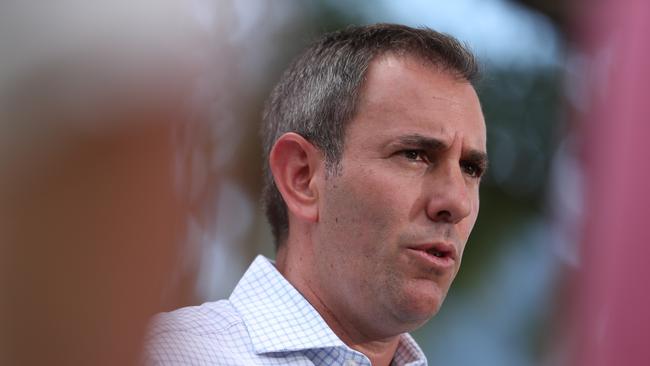Tax Institute hits out at unrealised capital gains aspect of super tax changes
The industry body has expressed concern at the potential taxation of unrealised gains in the Federal Government’s proposed changes to superannuation tax.

Business
Don't miss out on the headlines from Business. Followed categories will be added to My News.
The Tax Institute of Australia has expressed its concerns at the potential taxation of unrealised gains in the Federal Government’s proposed changes to superannuation tax.
The Institute’s general manager of tax policy and advocacy, Scott Treatt, said the proposed plans to increase the tax on superannuation earnings from 15 per cent to 30 per cent on super balances above $3 million would involve the tax of unrealised gains.
A fact sheet released by the Treasury says the earnings on super funds over $3 million would be calculated on the increase in the value of the fund over the year adjusting for withdrawals and contributions.
“This proposed calculation brings any unrealised gains into the tax net,” he said. “This proposed calculation brings any unrealised gains into the tax net.
“While the measure only applies to a very small proportion of the population, it is the detail in the policy which is concerning from a precedential law design perspective,” he said. “The taxation of unrealised gains disconnects the liability to pay tax from the derivation of income or gains, being the likely timing that cash is realised which would otherwise fund any tax liability.
“This leads to a distortion in the system should taxpayers then be forced to sell assets to fund the tax liability.”
He said the issue highlighted the need for a broader discussion on tax reform “to ensure our system is appropriately designed.”
He said political leaders needed to have the courage to have these discussions.
Howard Coleman, the founder of Sydney based investment group, Teaminvest, said his members were concerned that there were a “huge amount of unintended consequences” from the proposed changes.
He said people who had invested in high-flying companies which had a big rise in share prices in one year could find themselves subject to tax regardless if they had sold the shares or not.
“This is totally absurd,” he said.
This could see people being forced to sell assets to pay tax bills on unrealised gains.
His members believed that the government had not properly thought through the implications of the proposals.
He said Teaminvest members who were farmers were also concerned at the implications of the value of farm going up in a good year and falling a few years later when agricultural prices were down.
He said a significant rise in farm income and the value of a farm over one period could see a farmer forced to sell off property to meet a super tax bill. The proposals would also deter people from selling their homes to downsize and moving money into super. “Now they will just stay in their home making it harder for young people to get houses.”
He said the proposals would hurt younger Australians who would see the value of their super balances increase over time because of inflation which he said was most likely to be at levels of four per cent a year and above which would put their savings to the $3 million level more quickly than was officially estimated.
“It will hurt the young the most,” he said.
Originally published as Tax Institute hits out at unrealised capital gains aspect of super tax changes



